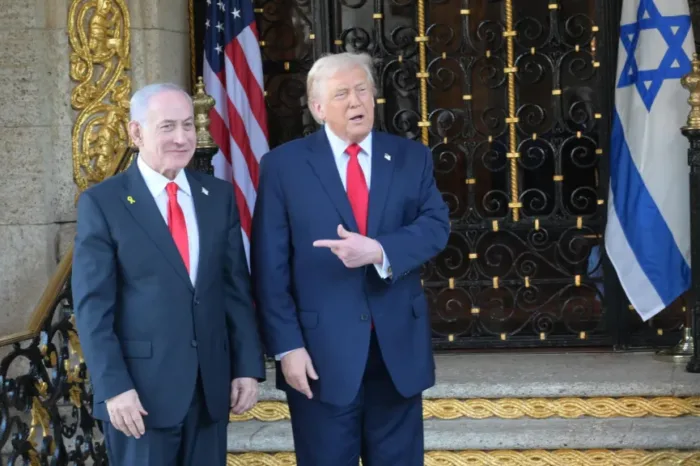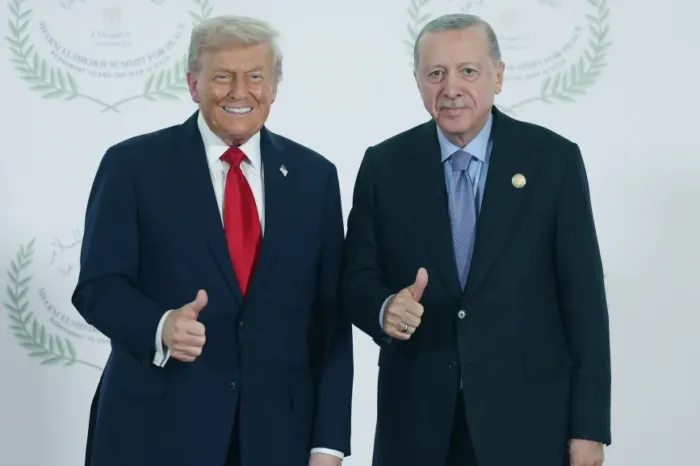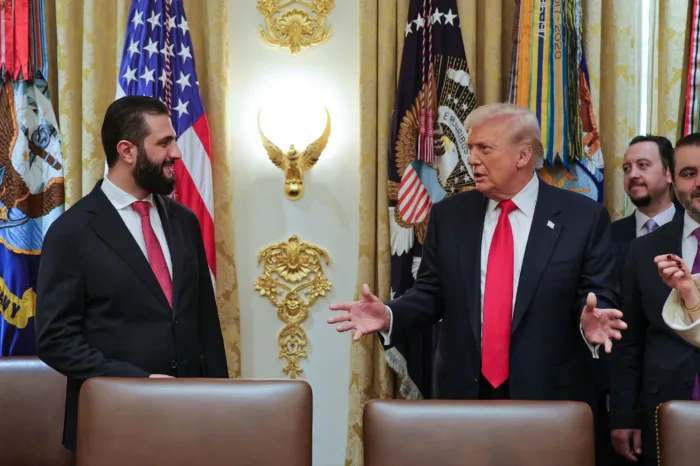After Turkeys November Elections: What Lies Ahead?
On November 4th, 2015, the SETA Foundation at Washington D.C. organized a panel discussion entitled, “After Turkey’s November Elections: What Lies Ahead?” that examined the outcome of Turkey’s November 4th, 2015 snap election. The panelists included Hon. Robert Wexler, President, S. Daniel Abraham Center for Middle East Peace, Burhanettin Duran, General Coordinator, the SETA Foundation, and Kadir Ustun, Executive Director, the SETA Foundation at Washington D.C.. The panel was moderated by Kilic B. Kanat, Research Director, the SETA Foundation at Washington D.C.
Kilic Kanat began the event by introducing the panelists and providing a short summary of the outcome of Turkey’s November 1st elections. He detailed the percentages of votes that the AK Party gained from both the HDP and MHP in order to regain the party’s single-party government majority.
SETA General Coordinator Burhanettin Duran was the first panelist to speak. He began by outlining how Turkey has experienced an “era of turbulence” in its political environments since 2013. The first event in this succession was the Gezi Park protests in May 2013, which were followed by the siege of Kobani beginning in September 2013, and finally the events of December 11th. According to Mr. Duran, the results of November 1st election marks a normalization in Turkish politics. The return to an AK Party single-party government, argued Mr. Duran, creates a secure political environment in which issues facing Turkey can begin to be addressed, including changing the country’s constitution, solving the Kurdish crisis, and playing an impactful role in Syria.
Discussing the election itself, Mr. Duran pointed out that the AK Party was able to gain votes from opposition parties that had struggled to define themselves in the post-June 2015 election hung parliament. The nationalist MHP lost votes to the AK Party because its leadership signaled during the coalition formation process that it did not have interest in sharing power in a coalition, but rather wanted to remain an opposition party, and the HDP lost votes to the AK Party largely owing to renewed terror and violence at the hands of the PKK in the aftermath of the breakdown of the Kurdish peace process.
Moving back to the issue of what lies ahead for Turkey now that the election is over, Mr. Duran asserted that Turkey needs to draft a new constitution which either fixes the weaknesses of the current parliamentary system or transitions the country into presidential system. Turkey has the option, he said, of leaving the country under a de facto presidential system lead by President Erdogan, but that this option is problematic. While he admits that the most recent electoral victory of the AK Party can be credited to Prime Minister Davutoglu, he maintains that President Erdogan clearly still holds leadership over the party and its voters. Like any politician, according to Mr. Duran, President Erdogan is looking forward toward the next round of elections in 2019, which will encompass three sets of elections, and assessing how his party can maintain and improve its position. He also argued that the 2019 elections will be even more critical for the future of Turkey than the November 1 elections.
Briefly addressing the Kurdish question, Mr. Duran said that he doesn’t expect a reopening of the resolution process with the PKK or HDP in the near future. He concluded his remarks by transitioning to Turkey’s role in Syria, putting forward his belief that Turkey, as a result of a stabilized domestic political situation, will likely become increasingly engaged in the future of Syria.
Next to speak was former Congressman Robert Wexler of the Abraham Center for Middle East Peace. He remarks focused on the recent Turkish elections from the US perspective. He began by saying that a strong Turkish government, which is once again in place as a result of the AK Party’s November victory, is advantageous for US-Turkey relations. He noted that, under AK Party leadership, Turkey has transformed into a country with a vibrant, international economy. He asserted that, even though there are those who don’t align themselves with the AK Party, the positive view Turks have about their future “speaks volumes about what Erdogan has achieved.”
Mr. Wexler then pointed out that Erdogan did not act wisely when faced with the Gezi Park protests. He felt that Erdogan should have felt confident enough in his position as the leader of Turkey to respond to the protests by pointing out his previous accomplishments and said that he would respect the fact that others don’t always agree with him. Mr. Wexler underscored that the President should have especially felt this confidence since none of the opposition parties have strong leaders that challenge him. Moving forward, Mr. Wexler noted that Erdogan has once again been given a “stamp of approval” by the Turkish people, and that he should use his renewed political capital to focus on ISIS and the PKK.
Transitioning his comments toward Turkey’s relationship with the US, Mr. Wexler said that the recent announcement that US special forces would be entering the conflict in Syria has changed what is at stake in that conflict for the US. He asserted that this shifting of stakes will likely lead to the US being less interested in Turkey’s insistence that coalition operations be done without Kurdish forces, and also will require that the US and Turkey work in a more collaborative way to “take the fight to ISIS and the PKK in a way that is consistent.”
SETA Foundation at Washington D.C. Executive Director Kadir Ustun’s remarks followed those of Mr. Wexler. Mr. Ustun began by pointing out that Turkey’s foreign policy is “almost exclusively focused on fighting the PKK, ISIS’s position in Syria, and the ongoing instability in Iraq” at this point in time. US policy in the Middle East has been constructed around the goal of defeating ISIL, a focus that is unlikely to change in the remaining years of Obama’s presidency. The US, in looking for partners on the ground in Syria, sees successful groups as those proving they can “take the fight to ISIS or limit their expansion.” This fact, he asserted, is the primary reason that the US is intent on including the PYD in its plans. He noted that the US has, to some extent, distinguished between the PYD and PKK, but that Turkey is in a position to better see the transfer of arms and personnel between the two groups. He points out that the PYD is an area where US and Turkey’s views of the conflict in Syria are contrary to one another. According to Mr. Ustun, Turkey will continue to act against the PYD unilaterally if and when they cross the Euphrates River. This action, whether it comes directly from Turkish military or through proxy forces, he contends, will stress Turkey-US relations. He also remarked that if Turkey is able to advance its own democratization and alleviate some pressure from its own Kurdish population it will be able to be more effective against the PKK both domestically and across its borders. Mr. Ustun said that if there is an agreed upon international approach to the situation in Syria it will strengthen US-Turkey relations. Inversely, if the international community proves incapable of creating a coherent strategy it will make US-Turkey relations more difficult.
With the panelists wrapping up their remarks, Mr. Kanat, in his roll as moderator, noted that opposition parties in Turkey had failed to become viable alternatives to the AK Party in the November election, and asked the panelists “what this lack of a viable opposition means for Turkey.”
Mr. Duran responded first by asserting that the lack of a strong opposition in Turkey is “a serious problem that is likely to continue.” To him, the weakness of opposition parties is that their political capital is derived from “anti-Erdogan and anti-AK Party sentiments.” Mr. Wexler agreed with this sentiment and put forward that, “If he was the CHP, he would be pushing for a new generation of leadership to take over the party in order to rebrand and refocus the party.”
Mr. Kanat asserted that the most recent elections in Turkey have been referendums on AK Party leadership in the country. To him, the continued success of the party was because of the lack of an alternative party. He said that the 5 months following the June elections, which resulted in a hung parliament, were very destructive for opposition parties. Instead of coming together to govern, the parties demonstrated their incapability of working together. Weighing in, Mr. Ustun remarked that opposition party leadership in Turkey has been unable to acknowledge the socioeconomic realities of the country, which is a vital part of a party’s success in elections. To him, the economy has been an especially crucial factor over the past 2 years. He noted that the CHP misplayed the opportunity that arose for them when the relationship between the AK Party and the Gulen Movement ruptured.
Wrapping up the discussion, Mr. Kanat then quoted a US Official who once remarked, “Turkey and the US have strategic convergences and technical divergences.” He then pointed to disagreements between the allies over Egypt, Obama’s alleged “red-line” in Syria, and later disagreements over northern Syria and Kobane as upholding this sentiment. Mr. Ustun built upon this assessment by noting that new elections in the US in 2016 will bring a new president into office that is likely to change the relationships. He said that he believes, if Hillary Clinton is elected, there will likely be less and less divergences between the two countries.
























